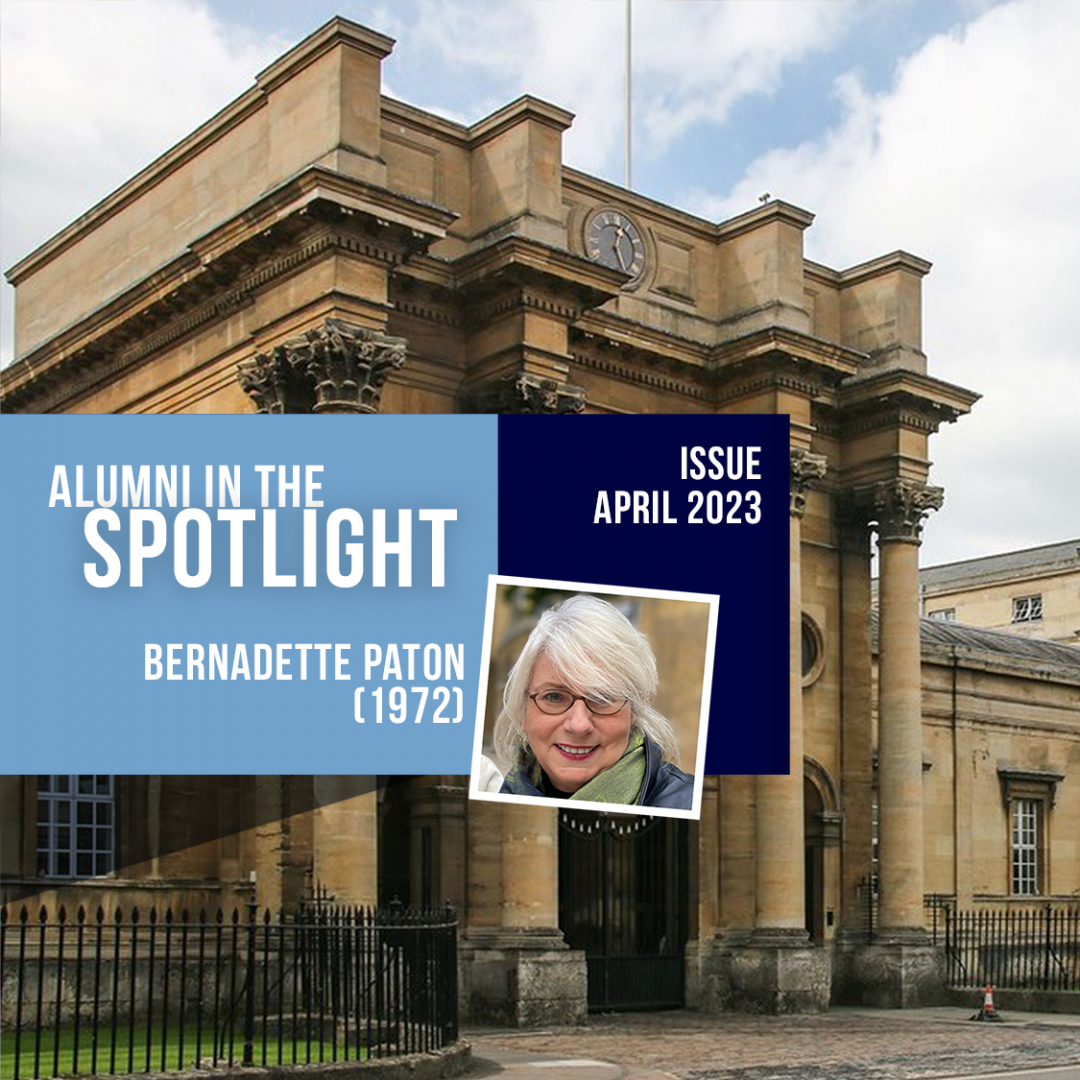
Bernadette Paton (1972) writes about her role as Executive Editor of New Words at Oxford English Dictionary in the UK
When I was in Form One at Sacred Heart in 1967 we were asked to write an essay describing what we wanted to be when we grew up. I think I said ‘a vet’, an unwise choice for a 12-year-old who was scared of animals, allergic to fur, and not very good at science. When I left school in the early 1970s I doubt I had ever heard the word ‘lexicographer’, much less imagined I would spend nearly 40 years as one. Like many people I probably thought the Dictionary had always been there, like the Bible – it wouldn’t have occurred to me that actual people write dictionaries.
So I came to lexicography not by design but through a series of happy accidents that involved an initial course at the Gordon (now Deakin), four years of teaching at Collingwood High School, a further degree from Melbourne University, and a move to Oxford in 1982 to do a PhD in medieval history. In the absence of academic jobs, in the mid-1980s I found myself replying to an advertisement for a New Words Editor on the Oxford English Dictionary (OED). I had no idea what the job involved but I thought it sounded interesting, and I couldn’t have been more right.
The complete OED is a historical dictionary, intended to show the history and evolution of every word that’s come into English from its first appearance. Words often change their meaning over time, and we track those changes. Nice used to mean ‘silly’ or ‘ignorant’ in medieval English. Terrible once meant literally ‘causing great fear or terror’. Wicked, after centuries of meaning ‘evil’, can now be used to mean ‘excellent’. English has lost some words but retained their partners and derivatives. We no longer say doublet for an outer garment, but we still say singlet for an under layer. We don’t beg for ruth, ‘mercy’, but we say ruthless to mean ‘showing no mercy’. We have lost hap, an old word for ‘chance, fortune’, but kept ‘happy’ and ‘happen’ which derive from it. We no longer use gainly but we retain ungainly. Why? No one knows.
The job of a new words editor is to pick up new words and senses as they appear or evolve in this way and add them to the dictionary. When I first started in the 1980s, this process had not changed since the days of James Murray, the first editor, a century before. Like him, we had readers who trawled through newspapers and magazines, checking for any words or senses that were not currently in the dictionary and writing quotations on paper slips which we kept in steel filing cabinets–in our Oxford office we still have a backlog of several million such slips. Some of the new words I remember preparing OED entries for in the ‘80s and ‘90s on these bits of paper are now part of everyday language: aerobics, AIDS, co-dependency, internet, proactive, and yuppie, to name just a few.
Things changed rapidly in the 1990s with the arrival of the internet, which, as well as allowing us to publish the OED online, gave us access to vast archives of online newspapers, books, and articles. Social media has added to this linguistic richness; websites like Twitter provide some of the earliest examples of new words. Other sources we use include film scripts, song lyrics, and advertisements. Drawing on these materials, recent additions to the OED include breaking bad, doxing (revealing someone’s personal details online), influencer, internet dating, mansplaining–and of course the language of Covid 19, which you can read more about here: https://www.theguardian.com/books/2020/apr/15/oxford-dictionary-revised-to-record-linguistic-impact-of-covid-19
Although the OED is based in Oxford, we add words from all around the English-speaking world, from Nigeria to Bermuda to Singapore, and (of course) Australia—some recent Australian additions include playlunch, stras, a sandwich short of a picnic, and hooning. It attracts attention from all kinds of people willing to help us in our research. J. K. Rowling obligingly wrote to us about Muggle. Charles M. Schultz, the creator of the Peanuts cartoon, told us about Linus’s security blanket, a term not invented but popularised by him. John le Carré described to us how he coined the phrase to come in from the cold from his experience in the Secret Service. This link between the OED and the literary world goes back a long way. J. R. R. Tolkien and Julian Barnes both started their working lives as OED editors; we have inherited their day jobs.
The great lexicographer Samuel Johnson, in his Dictionary of the English Language of 1755, ruefully defined his occupation thus:
‘Lexicographer. A writer of dictionaries; a harmless drudge.’
That’s us.
- Bernadette Paton
Executive Editor, New Words,
Oxford English Dictionary
